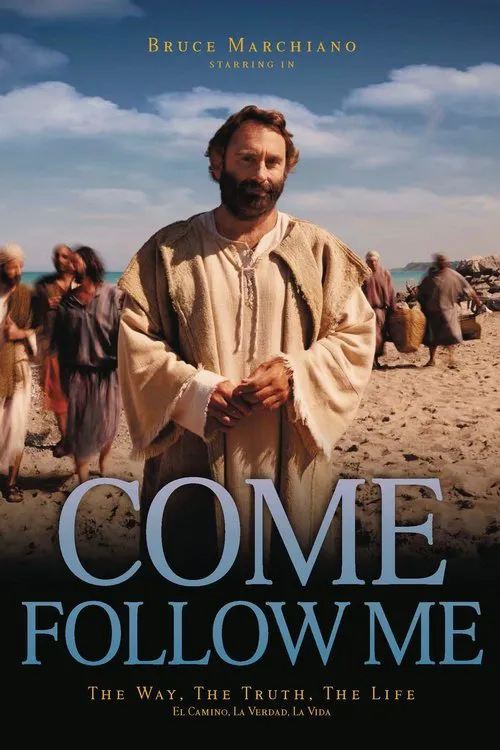Come Follow Me

Plot
Come Follow Me, directed by Neil Dyson and written by Neil Dyson, dramatizes the pivotal relationship between Jesus and the Apostle Peter, one of the most revered and iconic figures in the New Testament. The film takes a unique approach to the life of Peter, delving into the emotional and psychological aspects of his transformation from a humble fisherman to a confident and courageous leader in the early Christian Church. The movie opens with a dramatic scene on the Sea of Galilee, where Jesus Christ (played by Stephen Houghton) is walking along the shore, deep in conversation with three other fishermen, Peter (played by Stephen Houghton), Andrew (played by David McKendry), and John (played by John Hudson). As Jesus continues to speak, he notices Peter, who is captivated by the divine presence. It is in this moment that Jesus calls out to Peter, addressing him by name, saying, "You shall be called Cephas" (Peter). This simple yet profound declaration marks the beginning of a journey that would change Peter's life forever. As the story unfolds, we witness the dynamic interaction between Jesus and Peter, set against the rich backdrop of the Gospels. We see Peter's introduction to Jesus' teachings, his initial misunderstanding of his role, and his subsequent growth into a confident disciple. The film expertly conveys the emotional highs and lows of Peter's experience, making his eventual transformation all the more believable and inspiring. One of the most compelling aspects of the film is its portrayal of Jesus as a wise, compassionate, and gentle leader. Played with nuance and sensitivity, Jesus is shown as someone who understands the complexities of the human heart, yet remains unshakeable in his convictions. He sees Peter for who he is – a flawed, impulsive, and sometimes uncertain individual – and, through his kindness and patience, helps him to find his true potential. Peter, on the other hand, is brought to life by Stephen Houghton's outstanding performance. From his initial hesitation to his eventual boldness, Houghton masterfully conveys Peter's growth and development, making his character feel both familiar and fresh. Through his portrayal, we gain insight into Peter's emotional journey, which is marked by moments of both triumph and defeat. One of the most pivotal scenes in the film takes place during the Last Supper, when Jesus institutes the sacrament of Communion. Here, Peter's vulnerability and loyalty are put to the test as he struggles to come to terms with Jesus' impending crucifixion. In a heart-wrenching moment, Jesus predicts Peter's threefold denial, and the young disciple is left feeling shattered and disbelieving. The film's climax takes place after Jesus' resurrection, when Peter, along with the other disciples, meets with Jesus on the shores of the Sea of Galilee. It is in this moment of quiet intimacy that Jesus reiterates his charge, saying, "Feed my sheep" (John 21:17). In this poignant scene, Peter's transformation is complete; he has finally become the confident leader that Jesus envisioned for him. The camera pans out, and we see Peter, now a changed man, gazing into the eyes of the risen Jesus, ready to take on the challenges that lie ahead. Throughout the film, the cinematography is stunning, capturing the beauty and majesty of the Galilean landscape. The production design perfectly recreates the world of first-century Palestine, immersing the viewer in a rich and vivid environment. Come Follow Me is an extraordinary film that sheds new light on the relationship between Jesus and Peter. By focusing on the emotional and psychological aspects of their bond, the movie presents a nuanced and humanizing portrayal of these iconic figures. While staying true to the biblical narrative, the film's thoughtful and engaging approach invites the viewer to walk alongside Peter, to witness his transformation, and to feel the depth of Jesus' love and compassion.
Reviews
Recommendations




